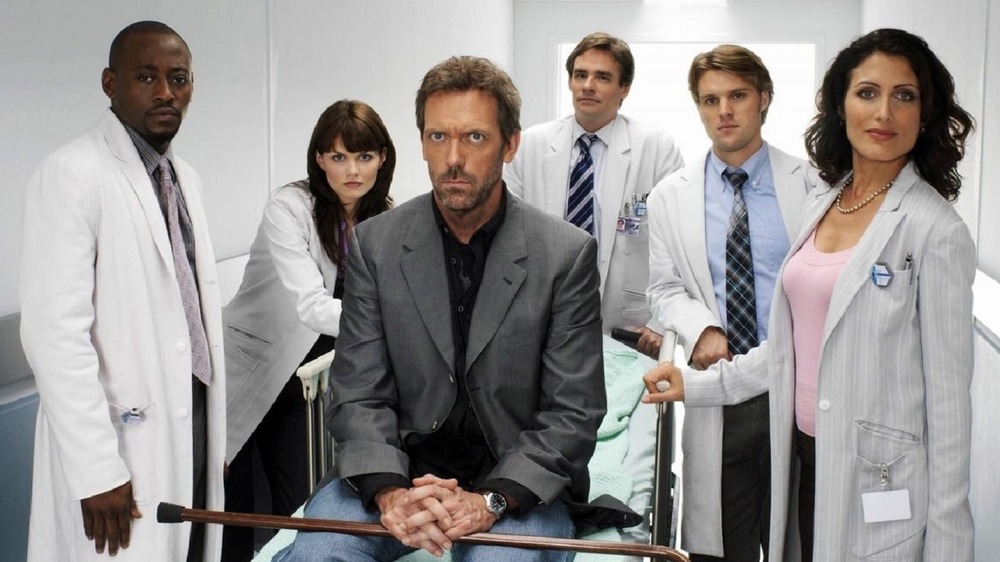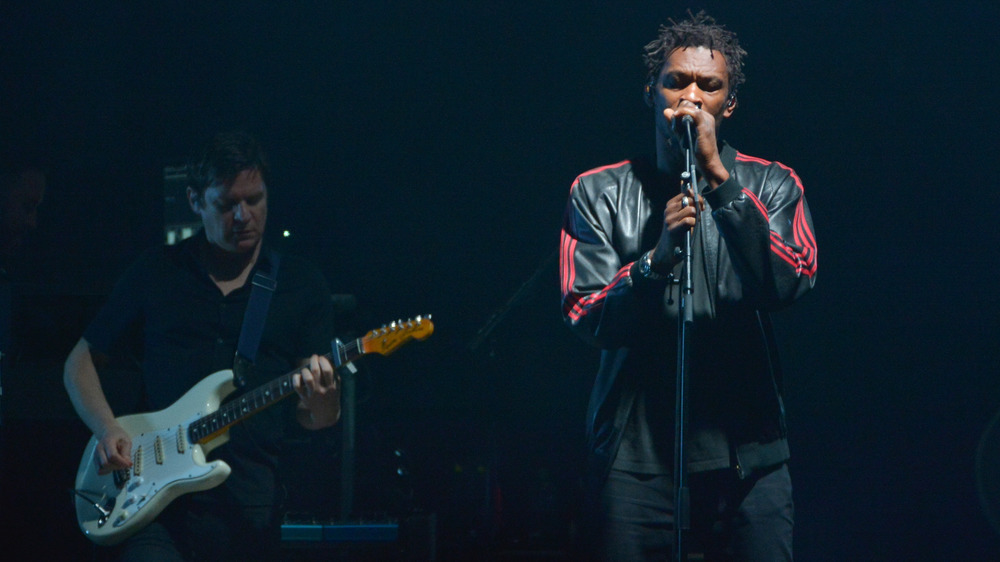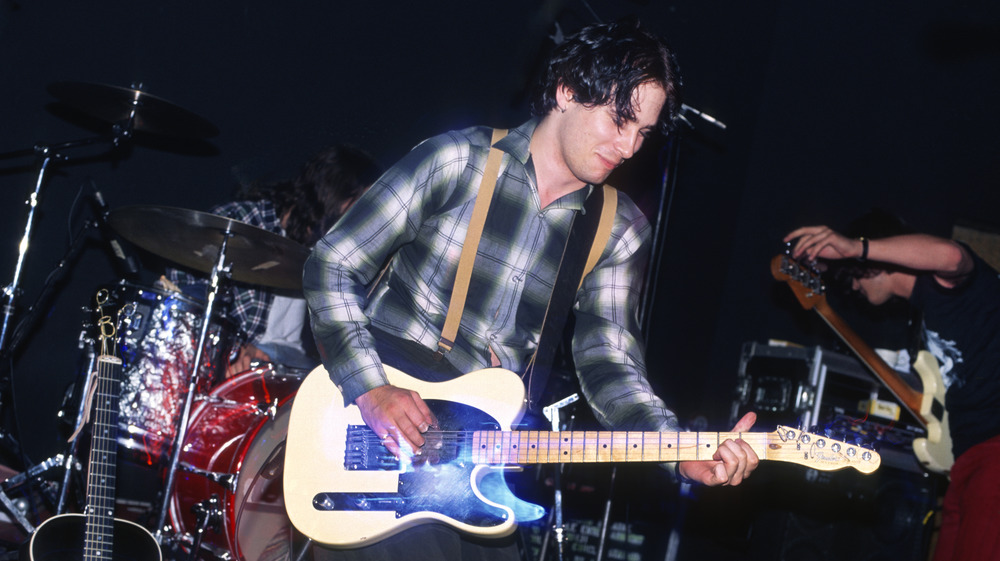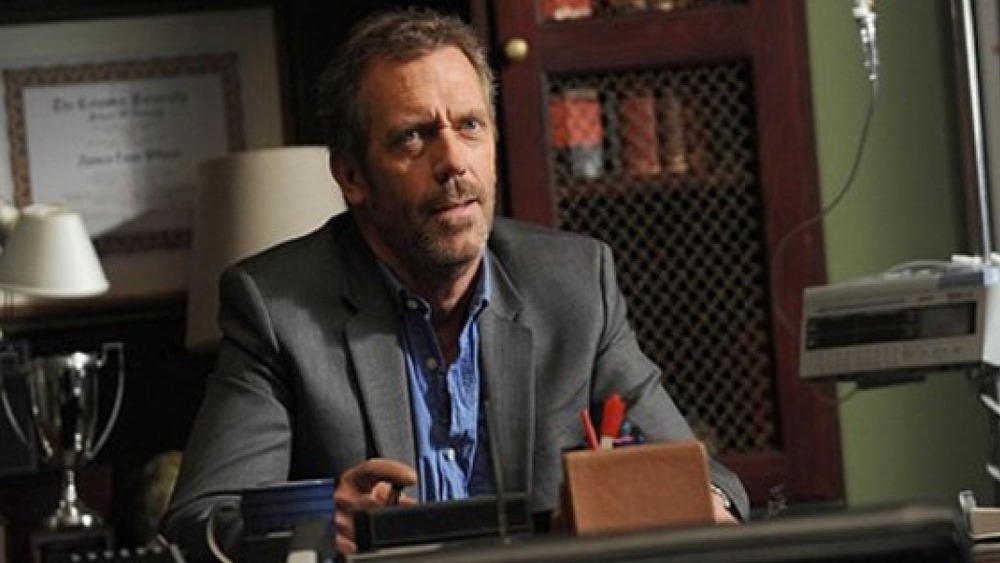The Truth About The House, M.D. Theme Song
The last quarter-century has given us some of the best television ever produced and, when it comes to hour-long, network dramas, not many were better than House, M.D. For eight seasons on Fox — between 2004 and 2012 — Dr. Gregory House (Hugh Laurie) employed an ever-changing team of diagnosticians to make impossible diagnoses and save countless lives at the fictional Princeton-Plainsboro Teaching Hospital, often butting heads with hospital administrator Dr. Lisa Cuddy (Lisa Edelstein) and seeking the counsel of his friend, oncologist Dr. James Wilson (Robert Sean Leonard). Created by television legend and The Good Doctor mastermind David Shore, House drew viewers in with its smart writing and high-stakes, often bizarre cases of the week — but it kept them hooked thanks to Laurie's central performance as the title character, an acerbic, misanthropic drug addict whose ability to diagnose the most difficult of cases bordered on the superhuman.
House is one of the more memorable television characters of the twenty-first century thanks to Laurie, a veteran British actor who managed to imbue him with a humanity that belied his sarcastic, confrontational disposition, not to mention a uniquely American cockiness. It's a performance that continues to resonate through popular culture; it's easy to see, for example, shades of Dr. House in Benedict Cumberbatch's performance as Doctor Strange in the Marvel Cinematic Universe.
House, M.D. "redefined the medical television show," according to the American Film Institute — and its Emmy-nominated opening sequence expertly set the stage for each episode, intercutting medical diagrams with aerial views of the hospital and its surrounding areas to a downtempo, harpsichord and piano-driven, slightly sinister instrumental track. Fans of the genre known as trip-hop probably recognized it instantly: it's the opening strains of 1998's "Teardrop" by British electronica icons Massive Attack, a top ten single in the U.K. that cracked the charts in over a dozen other countries.
Massive Attack are trip-hop icons
Formed in 1988, Massive Attack are one of the more popular bands to come out of what was initially dubbed the "Bristol scene," forming from the remnants of a loose collective of DJs known as the Wild Bunch. Composed of Robert "3D" Del Naja, Grant "Daddy G" Marshall, Andrew "Mushroom" Vowles, and Adrian "Tricky" Thaws, the group developed its sound by fusing elements of anything that would stick — reggae, punk, rap, R&B, anything was fair game — over lo-fi, ambient soundscapes anchored by dark, plodding rhythms. While the band would often reject the label in their early days, they're widely acknowledged to be among the early pioneers of trip-hop — a genre that grew to include bands like Portishead and Earthling, and which would eventually seep into the work of such artists as DJ Shadow, Sneaker Pimps, Flaming Lips, and Gorillaz.
According to Massive Attack's fan site, "Teardrop" was composed in 1997 by Vowles and the band's producer Neil Davidge, the former of whom immediately settled on a vocalist for the track: Madonna, whose 1995 single "I Want You" (a cover of the Marvin Gaye classic) had featured Massive Attack on production. The pair whipped up a demo and sent it off to the legendary pop star, who loved it — but unfortunately for her, the other band members had a different idea. They thought that ex-Cocteau Twins lead singer Elizabeth Fraser would be a better fit, and after taking a vote, Fraser got the nod.
If you're only familiar with "Teardrop" from the opening of House, it can be quite a shock to hear Fraser's lilting, ethereal vocal come in, crooning lyrics that are... well, kind of creepy: "Night, night of matter/Black flowers blossom/Fearless on my breath/Teardrop on the fire." It's a vocal performance that works its way under the skin, and according to Fraser, there's a pretty good reason for that.
Teardrop is a tribute to a music legend
According to The Guardian, Fraser had struck out on her own after Cocteau Twins broke up in 1997, in no small part due to the strained relationship between the singer and the band's guitarist Robin Guthrie, her longtime partner and the father of her child. For a short time, she dated singer-songwriter Jeff Buckley; after hearing his 1994 album Grace, Fraser had become infatuated with his voice, and the feeling was mutual. The pair even recorded a duet, "All Flowers in Time Bend Toward the Sun," which was never officially released.
Unfortunately, Grace would be the only studio album Buckley ever recorded. On May 29, 1997, the singer decided to take a late-night dip in the Mississippi River, a sojourn which tragically ended in his drowning. Fraser, who had lost touch with Buckley due to his constant touring, received the news as she was in the middle of composing the lyrics to "Teardrop."
"That was so weird," she told The Guardian. "I'd got letters out and I was thinking about him. That song's kind of about him — that's how it feels to me anyway." The melancholy quality of Fraser's performance is reflective of the guilt that she says she felt at the time for not being there for Buckley — although his estate has made it clear that the singer's death was entirely accidental and not suicide, nor were drugs or alcohol a factor. "I just wish I'd been more of a friend," she said. "His career was everything to him, and I wish I had been more understanding — happy with a different kind of relationship. I missed out on something there, and it was my fault."
Massive Attack didn't benefit much from the association with House
As to how "Teardrop" came to be used as the main theme for House, Del Naja has said that the band wasn't about to let another opportunity slip by after previously having refused to allow the song's use in an American feature film. That film: American Beauty, which won the Academy Award for Best Picture and launched the career of award-winning director Sam Mendes. "We would've been number one in America," Del Naja told The Guardian with a chuckle.
When House producer Bryan Singer reached out about using the tune for his new medical drama, then, the band were a little more receptive. In a separate Guardian interview, Del Naja revealed that Singer may have overstated his case just a bit: "We got an email from Bryan Singer saying the entire concept of House was based on 'Teardrop,'" he said. "We were flattered. We let him have it." Let him have it? As in... for free? Apparently so, or perhaps something close to it: "We cut ourselves out of a f**kload of money with that song," Del Naja said.
The song's prominent use as the opening theme of one of the most popular shows of its era also failed to propel Massive Attack to number one in America, where the band have, in fact, never had a single crack the top ten. Not that the legacy of "Teardrop" isn't secure: it's still one of Massive Attack's signature songs more than two decades after its release, and it's been covered by the likes of Newton Faulkner, O'Hooley & Tidow, and José González, whose acoustic version was featured in "Wilson's Heart," the final episode of House's fourth season.



